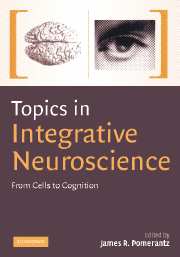Book contents
- Frontmatter
- Contents
- List of contributors
- Preface
- Overview of neuroscience, choice and responsibility
- 1 Neuroscience, choice and responsibility
- PART I HIGHER ORDER PERCEPTION
- PART II LANGUAGE
- Introduction to Language Section
- 5 Varying degrees of plasticity in different subsystems within language
- 6 The functional architecture of speech perception
- 7 Varieties of silence: the impact of neuro-degenerative diseases on language systems in the brain
- 8 Why is language unique to humans?
- PART III MEMORY SYSTEMS
- PART IV SENSORY PROCESSES
- Index
- Plate section
- References
8 - Why is language unique to humans?
Published online by Cambridge University Press: 08 August 2009
- Frontmatter
- Contents
- List of contributors
- Preface
- Overview of neuroscience, choice and responsibility
- 1 Neuroscience, choice and responsibility
- PART I HIGHER ORDER PERCEPTION
- PART II LANGUAGE
- Introduction to Language Section
- 5 Varying degrees of plasticity in different subsystems within language
- 6 The functional architecture of speech perception
- 7 Varieties of silence: the impact of neuro-degenerative diseases on language systems in the brain
- 8 Why is language unique to humans?
- PART III MEMORY SYSTEMS
- PART IV SENSORY PROCESSES
- Index
- Plate section
- References
Summary
Introduction
Linguists, psychologists, and neuroscientists have studied language acquisition with the tools and models available to their respective fields. Linguists elaborated some of the most sophisticated theories to account for how this unique human competence arises in the infants' brains. Chomsky (1980) formulated the parameter setting theory (hereafter, PS) to account for how infants, on the basis of partial and noisy language input, acquire grammar. PS assumes that infants are born with “knowledge” of Universal Grammar (UG). This includes both genetically determined universal principles and binary parameters. Universal principles describe the properties common to all natural languages. Binary parameters capture the grammatical properties on which natural languages differ from one another. The linguistic input determines the particular value of a parameter. PS postulates that exposure to the surrounding language determines how the parameters of UG are set.
We acknowledge that PS has many virtues. It addresses the problem of language acquisition without making unjustified but common simplifications, for example, that imitation is the privileged mechanism responsible for the emergence of linguistic competence. The theory, furthermore, is quite appealing because it assumes, realistically, a biological perspective, namely, that the child is equipped with a species-specific mechanism to acquire natural language. Moreover, the PS theory has been formulated with sufficient detail and precision as to make it easy to falsify. In contrast, proposals that assume that language is acquired by means of a general learning device appear more difficult to support.
Information
- Type
- Chapter
- Information
- Topics in Integrative NeuroscienceFrom Cells to Cognition, pp. 206 - 236Publisher: Cambridge University PressPrint publication year: 2008
